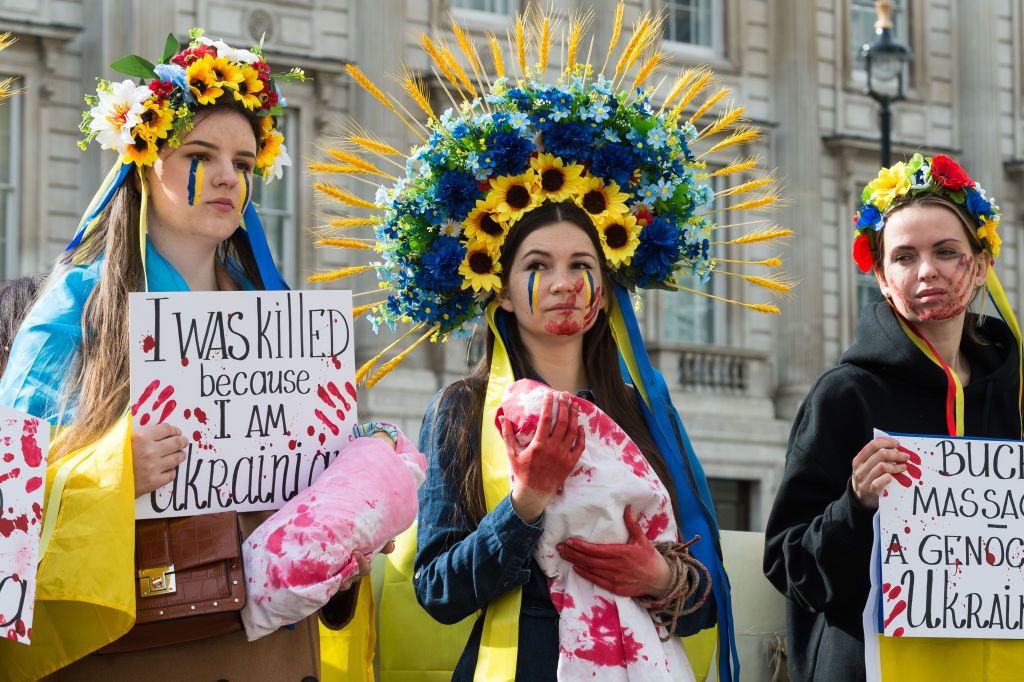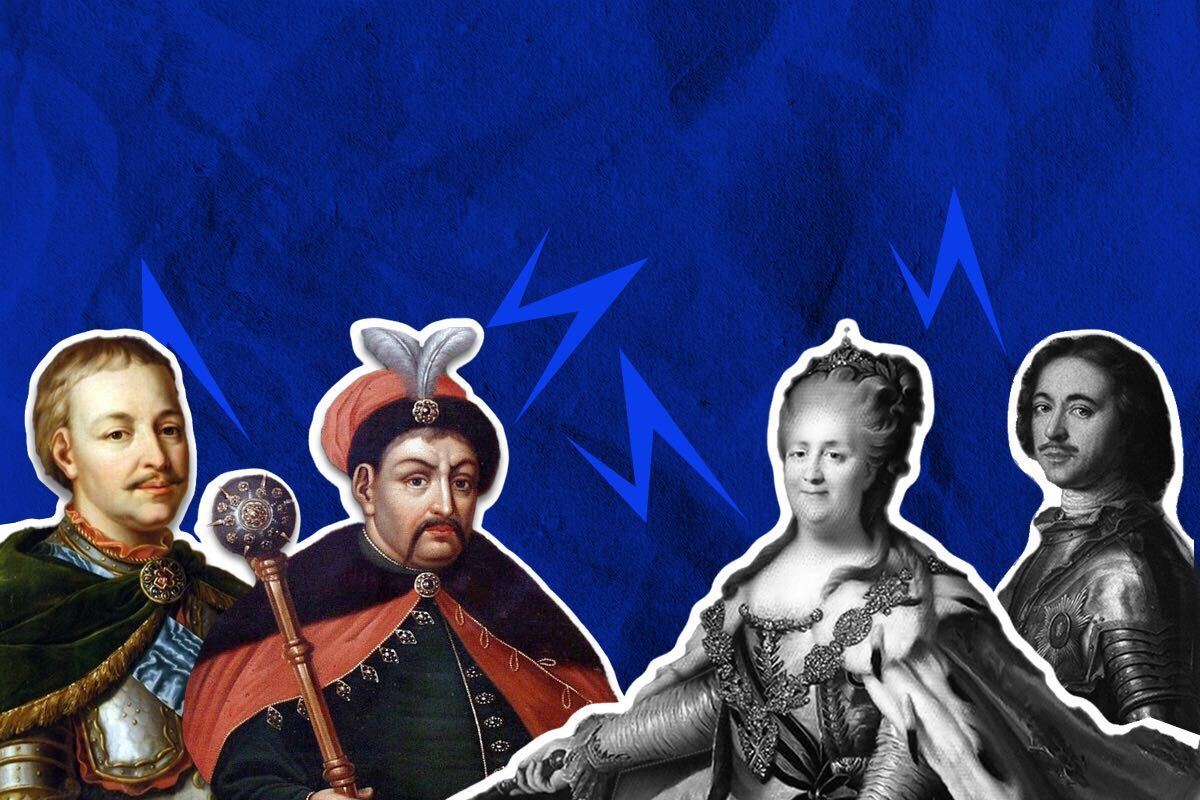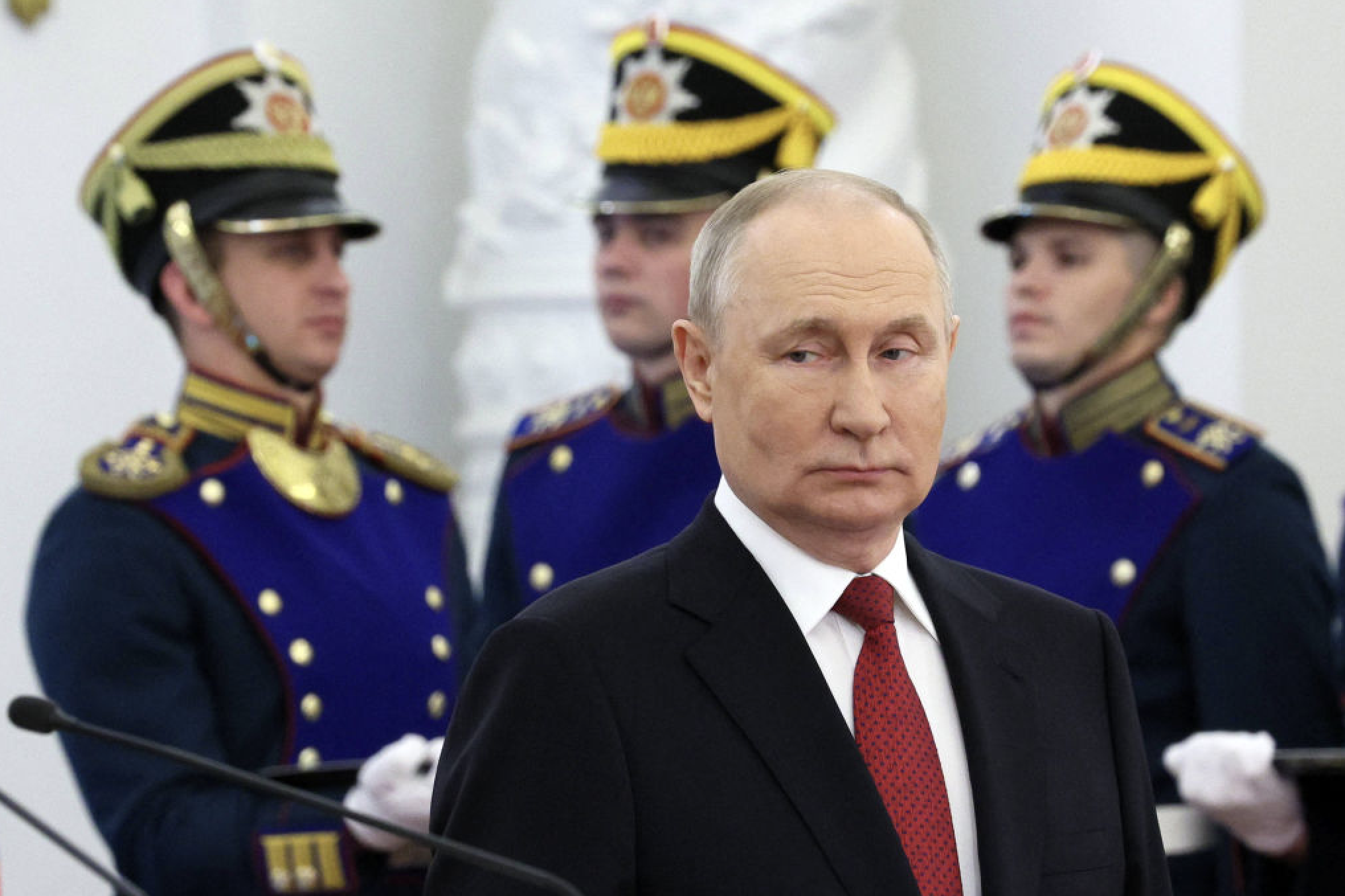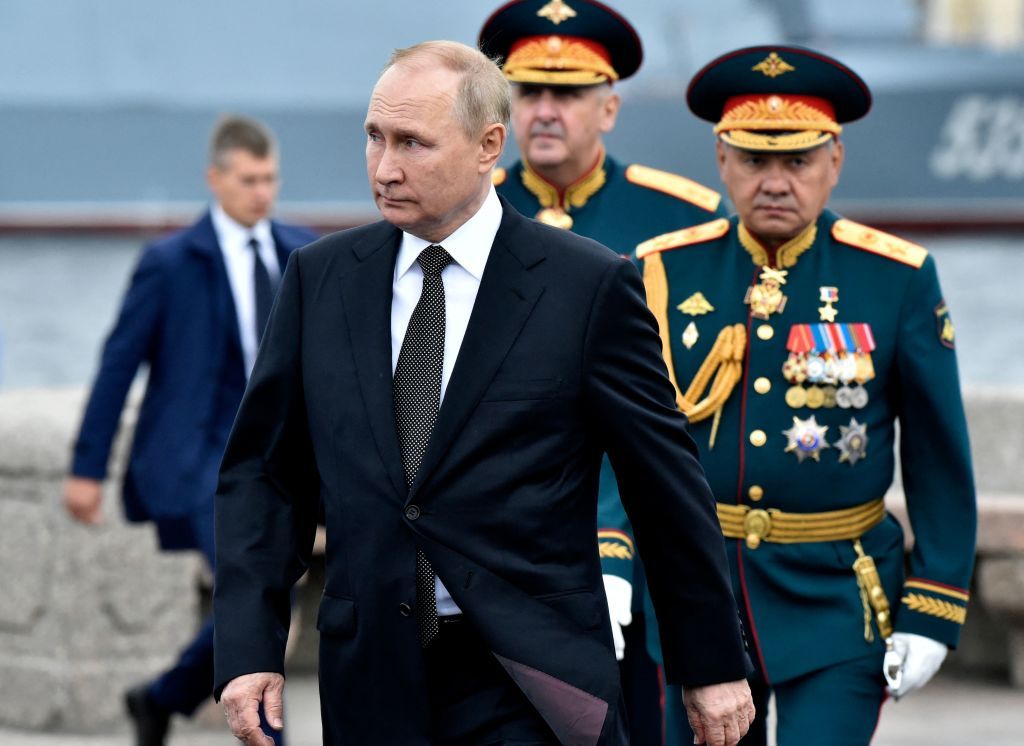Richard Cashman: Understanding Russia’s imperial conceits

Understanding Russia’s February 2022 full-scale invasion of Ukraine as part of an imperial war begun in 2014 has become increasingly commonplace in Euro-Atlantic foreign policy-making circles and amongst a wider group of countries concerned with ending the war. Yet the full range of imperial conceits which underpin the Kremlin’s vision for Russia and the narratives justifying its violence in Ukraine and elsewhere are rarely touched upon even in that context.
A distant but important starting point is the notion of Moscow as the “Third Rome.” Following the schism in 1054 between the eastern and western branches of Christendom, Byzantine Constantinople in the east claimed to be the seat of the true (Orthodox) Christian faith and referred to itself as the “Second Rome.”
In 1453, Constantinople fell to the invading Ottomans. Muscovy, the principality based on Moscow to which Christianity had spread from Kyiv, adopted much of the imperial insignia of Byzantium, the title Tsar (Caesar), and began referring to itself as the “Third Rome.”
To most people hearing this for the first time it sounds, frankly, bizarre, not least because Muscovy did not exist at the time of, and had no practical connection to, the Roman Empire. Nor did it enjoy much experience of the Latinate Renaissance, spurred by Greeks fleeing conquered Constantinople in far larger numbers to western and central European states than to Muscovy.
Moreover, there was no general recognition amongst other Orthodox states that Muscovy had assumed the place of Constantinople. Moscow as the “Third Rome” therefore seems to have been as much a reference to imperial power as to church doctrine. Either way, it became the messianic foundation of Russia’s conceit of exceptionalism.
Conceits of exceptionalism have been integral to all empires; a compulsion to explain their evident successes, their dominance over less-dynamic peoples, and their elegant distinction from competitors.
One manifestation of this has been the idea amongst some 19th-century Russian historians that the Russian Empire developed in a way fundamentally different from that of the other European empires, whether land-based or maritime; that it “colonized itself,” whereby the peoples and traditions of the conquered peripheries actually came to define the Moscow metropole and imperial whole.
Influence of the peripheries on the metropole has, in fact, been common to all empires and was not unique to the Russian. The Russian Empire exhibited the classic structural traits of all empires, namely the enrichment of the metropole from the resources of the peripheries and the imposition of political control and cultural norms in return.
In relation to Ukraine, in particular, there is the concept of the tripartite nation, consisting of “Great Russians” (modern Russia), “Little Russians” (Ukraine), and “White Russians” (Belarus). This has been portrayed by successive governments in Russia as an ancient arrangement.
Actually, the formulation also arose amongst 19th-century historians and obfuscated a far more complex history, which included centuries of often independent development, in the Ukrainian case both as part of Poland-Lithuania and independently as the Cossack Hetmanate. Yet it is this imperial conceit that has been used by the Kremlin, especially domestically, to garner support for its war against Ukraine.

The “Russian soul” appears as another obvious conceit of exceptionalism. Mykola Gogol – a Ukrainian who chose to write in the language of the St. Petersburg metropole – popularized the term in reference to Tsarist tax laws referring to serfs as souls.
It was another writer, Fyodor Dostoevsky, who developed the concept to distinguish Russia from other European empires, and consciously shrouded it in a mystery; a mystery which western writers and even academics continue heavily to trade on.
Again there is a 19th-century origin for a concept supposedly of great antiquity. That Dostoevsky also wrote of Russians being slaves and hangers-on in Europe, but going to Asia as masters should leave little doubt about his susceptibility to imperial conceit. The innocence which Dostoevsky claimed had been lost by western Europeans, but still characterized the Russian soul, would not be readily apparent to anyone visiting Bucha, Mariupol, or Nova Kakhovka today.
“Eurasianism” also arose during the 19th century and sought to extol a distinct Russian civilization of mixed European-Asiatic heritage and Byzantine autocracy. Eurasianism was defined against Peter I’s attempts to convert Russia to western European thought and practice and provided inspiration to Dostoevsky and other Russian nationalists. Eurasianism declined during the later 19th century, but enjoyed a revival after 1917 amongst White Russian emigres fleeing the Russian Revolution to Europe, where many felt an acute sense of political and cultural otherness.
Revolutionary Russia was supposed to be defined against empire, yet the Bolsheviks rapidly set about recovering all imperial territory lost during World War I. Under Stalin, the USSR developed even more highly centralized political and economic forms of control over the multitude of nationalities and peoples of the reconstituted empire, of which ethnic Russians were a minority.
Following World War II, Moscow positioned itself as a champion of European decolonization. It sponsored multiple anti-colonial wars against the European maritime empires, all the while consolidating control over the peripheries of its outer empire, mostly notably by crushing the Hungarian Uprising of 1956 and the Czechoslovak equivalent of 1968.
Come the Brezhnev era, when the western European maritime empires were becoming increasingly aware of their own imperial conceits, the development of “Homo Sovieticus” – “Soviet man” – to replace national identities within the USSR had quite successfully obscured most evidence of Moscow’s inner empire in the eyes of both western and non-aligned countries.
In the post-Soviet Russian Federation, nationalist writers like Alexander Solzhenitsyn and Alexander Dugin revived autocratic Eurasianist sentiments in opposition to the westernizing of the Russian government. Certainly, one reason for this was the worrisome implications of democratization and liberalization in the context of the centrifugal forces pulling parts of the federation’s peripheries away from the metropole.
Post-Soviet Eurasianist pronouncements about Moscow’s rightful control of various peoples across Asia often read like the pluricontinentalism espoused by Portugal’s fascist Estado Novo about its own decaying empire. The very idea of “Eurasia” in its most common iteration - the ubiquitous Russian and Eurasian studies programs that mushroomed in western academia following the Soviet dissolution – represents an unwitting endorsement of Russia’s imperial conceits.
In his first terms as president, Vladimir Putin’s attempts at close relations with George W. Bush rested squarely on the naïve expectation that Washington would accept Moscow’s residual imperial vision for itself, even though that was anathema to the aspirations of dozens of states in its former periphery.
Rebuffed, Putin increasingly made reference to the “historical Russian state,” a conceit that he based on maps of the Russian Empire at the time of its apogee. He also endorsed the idea of the “Russian World,” similar to Eurasianism, but with a focus on language, thereby expanding Moscow’s claims to include the loyalty of all Russian speakers.
The vast majority of Putin’s geopolitical ideas, which he condensed into an essay in 2021 about Russia and Ukraine, are rooted firmly in the 19th century, which is indeed the favorite century of most European imperialists. The Kremlin needs its imperial conceits because Putin’s clan lacks alternative overarching ideas with which to bind and enthuse citizens of the Russian Federation. Conflating the narrative of NATO being a threat to Russia with the reality of NATO being a threat to Moscow’s imperialism has also been essential to that endeavor.
The disaster of Russia’s full-scale invasion of Ukraine has completed another conversion-reversion cycle, from partnership with democratic states back to Eurasianist autocracy. That cycle is only likely to be broken by the unsustainable costs of attempting to maintain empire and, ultimately, by Russians’ greater awareness of their own imperial conceits.
It is not clear if the violence and bile emanating from the Kremlin today represent the final stages of imperial decline and if that will precipitate such awareness, but at least those making policy in relation to Russia can better understand the depth of the conceits they are dealing with, and those writing about Russia stop trading in them.
Editor’s Note: The opinions expressed in the op-ed section are those of the authors and do not purport to reflect the views of the Kyiv Independent.
















